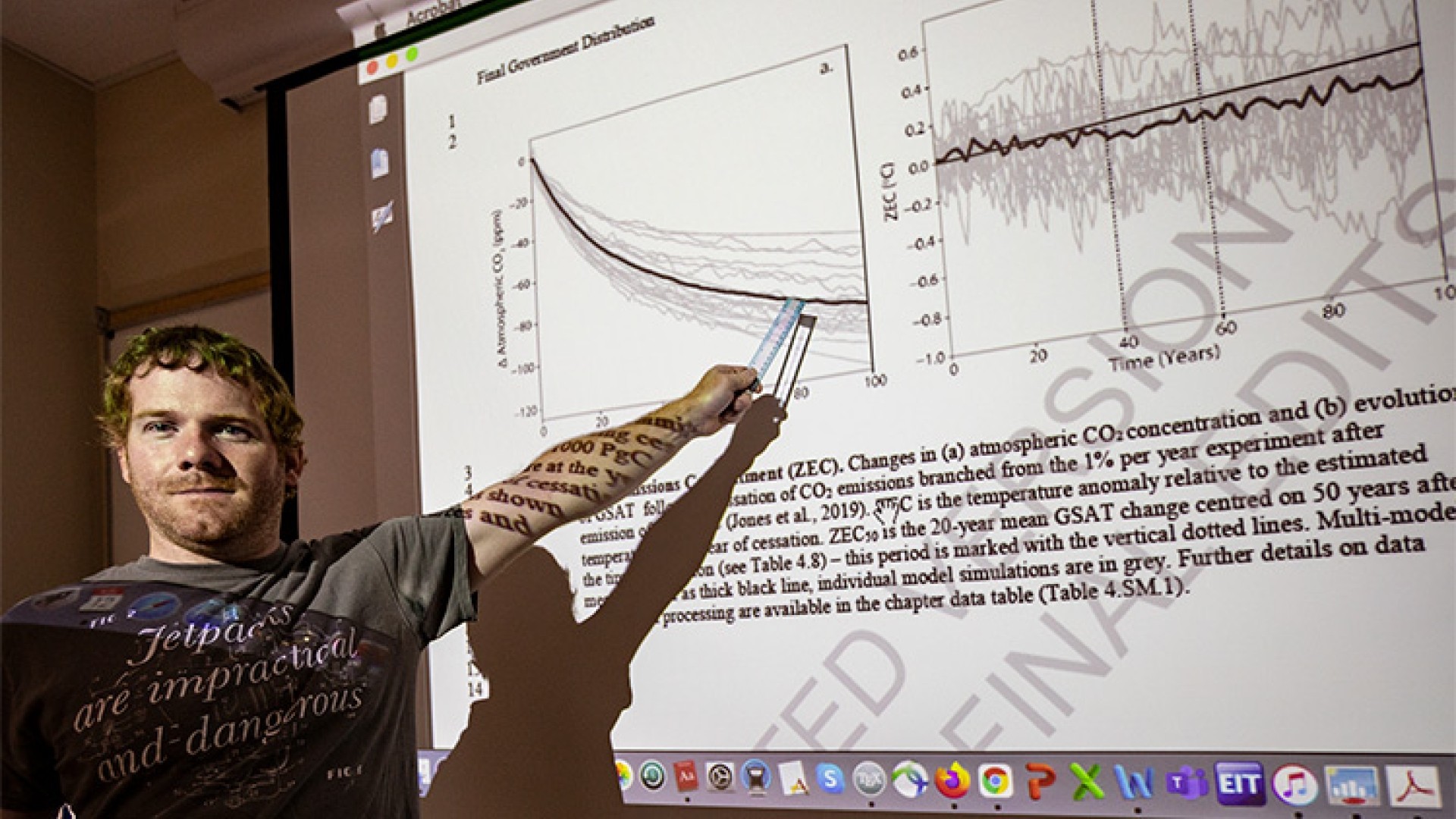
Dr. Andrew MacDougall, Coordinator, Climate & Environment at StFX, is a contributing author for the most recent report of the Intergovernmental Panel of Climate Change (IPCC), approved by 195 governments and publicly released Aug. 9. These reports are significant internationally and form the basis of international negotiations to mitigate climate change.
The report, known simply as 'The sixth assessment report of the IPCC' or 'AR6,' is a comprehensive assessment of climate science, involving the work of hundreds of experts. Already, the report is gaining much attention as it warns of humanity’s responsibility for climate change.
Dr. Richard Isnor, StFX Associate Vice President, Research & Graduate Studies, says it is a major achievement for Dr. MacDougall to contribute to this report.
“The IPCC reports represent the very latest scientific assessments on global climate change and are compiled by top climate scientists from around the world. Being part of this process is a significant achievement given the importance of these reports to international negotiations and action on climate change,” he says.
“I am proud to have been able to contribute to AR6,” Dr. MacDougall says. “IPCC reports are landmark events in climate science and involve thousands of scientists from around the world working for years to summarize the findings of a vast field of natural and social science. When you study climate science as an undergraduate and graduate student you read IPCC reports as textbooks, so to see one's name on the (long) author list is major career milestone.”
Dr. MacDougall was a contributing author to two chapters of the report, Chapter 4: Future global climate: scenario-based projections and near-term information and Chapter 5: Global carbon and other biogeochemical cycles and feedbacks.
He says as part of the IPCC process, contributing authors are invited by lead authors to contribute summaries on the scientific knowledge on a specific specialized topic. Lead authors and coordinating lead authors are nominated by national governments and appointed by the United Nations.
“In my case, I was asked to write the section on the 'Contributing physical processes and theoretical frameworks' for carbon budgets in recognition of my work on the subject. Additionally, I was asked to contribute a figure summarizing the results of the Zero Emission Commitment Model Intercomparison Project (ZECMIP) for Chapter 4.
“I was invited to become a contributing author back in February 2019 when Chapter 5 was being drafted. The lead authors needed assistance explaining why warming from CO2 is directly proportional to total emissions of CO2. I drafted about four pages of the report summarizing what is know about the physical basis of this phenomena.
“In 2019 I was asked to coordinate and lead the analysis of the ZECMIP project in which 18 modelling groups from 12 nations participated (Australia, Canada, Chile, Denmark, France, Germany, Japan, Norway, Russia, Switzerland, United Kingdom, and United States). Because of my work on ZECMIP, I was asked to draft a figure summarizing the finding for Chapter 4.”
In summarizing the areas he worked on, Dr. MacDougall says, “In order to stabilize global temperature, emissions of CO2 must be reduced to zero and emission of methane, nitrous oxide, and other greenhouse gases must be significantly reduced.”
The IPCC is an intergovernmental body of the United Nations created by the World Meteorological Organization and the United Nations Environment Programme in 1988. Since its founding, the IPCC has produced six assessment reports on the scientific basis and impacts of climate change.
This research is, in part, made possible by the Government of Canada Research Support Fund.

